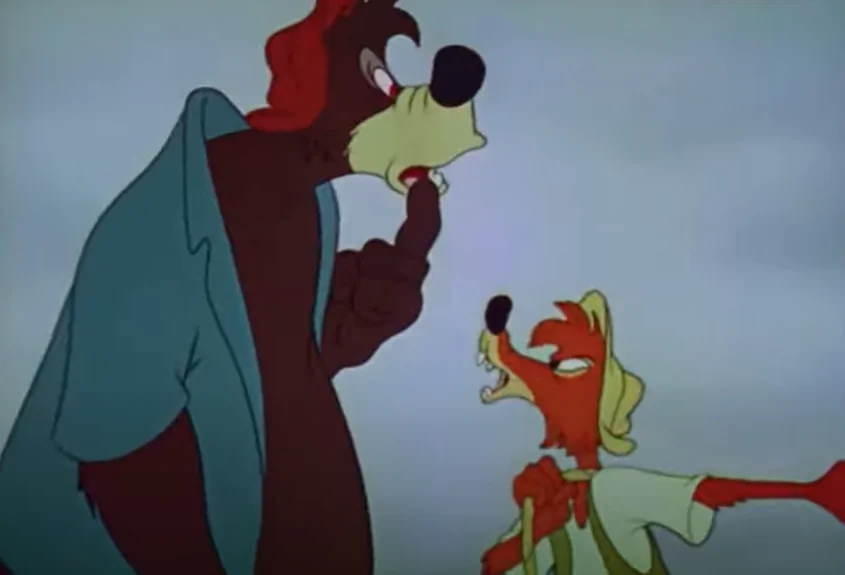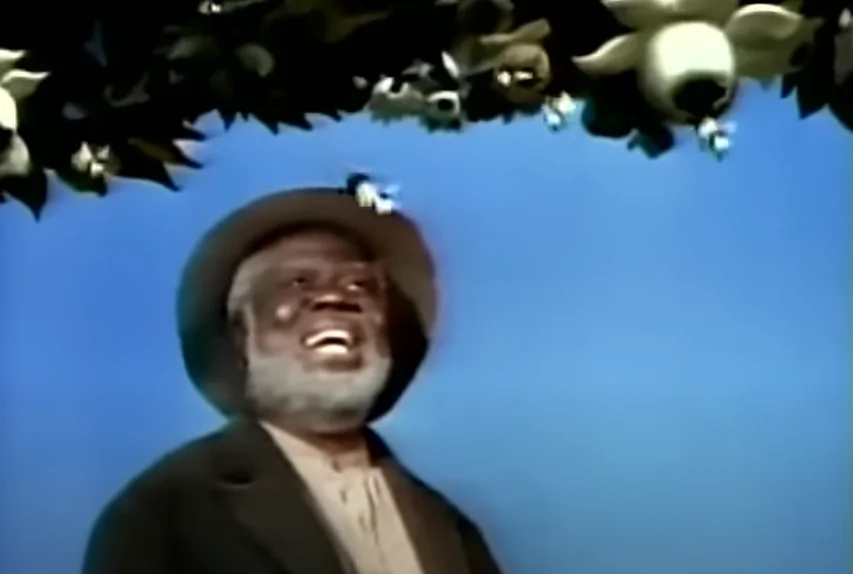
By the summer of 2025, a campaign promoting the online nomination of Walt Disney’s 1946 movie “Song of the South” has been spreading on social media networks. This movement encourages film lovers, Disney fans, and people who care about cultural conservation to cast their votes for this classic film to be added to the National Film Registry.
Under the leadership mainly of cartoonist and conservative commentator Ed McCray, this movement highlights the movie’s historical importance, artistic value, and cultural impact, all while contesting what they refer to as Disney’s current censorship efforts. As the deadline for nominations, falling on August 15, 2025, approaches, the campaign has ignited discussions about preservation, racial representation, and the influence of contentious art within American history.
Background on Song of the South
1946 saw the debut of “Song of the South,” a unique film that combines live-action and animation, inspired by the Uncle Remus tales penned by Joel Chandler Harris, which are rooted in African American folk stories.

The film narrates the story of a young boy who gains life wisdom from Uncle Remus (portrayed by James Baskett) through engaging animated stories featuring Br’er Rabbit, Br’er Fox, and Br’er Bear. This production marked a significant achievement for Disney, as it creatively combined live-action scenes with animation. Moreover, it introduced the award-winning song “Zip-a-Dee-Doo-Dah.
As a lover of cinema, I’ve come to acknowledge that the classic film in question has faced significant criticism over the years. It’s been accused of perpetuating stereotypes and romanticizing life on post-Civil War plantations. Upon its initial release, it encountered boycotts from organizations like the NAACP, and it hasn’t seen a U.S. re-release since 1986. Disney has even taken steps to remove any traces of it from their parks, such as retheming Splash Mountain. The film’s detractors argue that it glorifies a painful chapter in American history.
Many people who support this movie believe that any perceived bias in it has been exaggerated or misunderstood. Instead, they see it as reflecting the attitudes of its era, not as a deliberate expression of hate. They advocate keeping it available to prevent censorship and to provide historical perspective.

The tale unfolds in the Reconstruction era (after 1865), not during the time of slavery. In this narrative, Uncle Remus is portrayed as a liberated sharecropper, rather than a slave. Advocates, such as those on songofthesouth.net, highlight this disparity, asserting that the movie depicts interracial harmony and Uncle Remus as a clever character who outwits white characters subtly.
YouTuber La Reina Creole has been among the most vocal figures challenging this particular narrative. Previously, she shared her views on the matter during an interview with That Park Place last year, stating that in her opinion, the movie is not problematic at all.

She clarified that the movie’s setting is during the Reconstruction era, which followed the abolition of slavery. During this time, formerly enslaved Black individuals, as well as free Black people, impoverished White folks, and members of the White planter class, were all navigating a new way of coexisting in society under fresh guidelines.
During Reconstruction, both Black and White laborers were found working on plantations as sharecroppers. Even in the movie “Song of the South,” a White family of sharecroppers is depicted.
As I was brought up to understand by my grandparents from the Jim Crow era, it wasn’t unusual for poor Black and White individuals to coexist harmoniously,” she explained. “The dialect presented in the movie ‘Song of The South’ mirrors the way my grandparents spoke. Many people during that time had limited education, and this was reflected in their manner of speaking, regardless of their race.

After that, she proceeded to justify the bond between Uncle Remus and the plantation masters depicted in the movie.
In this movie, what others label as ‘submissive’ is more accurately depicted as the continuation of a previously established bond that didn’t simply dissolve with the abolition of slavery, as La Reina explained, addressing the misconceptions about the film’s portrayal of contented slaves.
Regardless, “Song of the South” continues to be significant within Disney’s history, shaping attractions and merchandise for many years. The fact that it is not officially distributed has actually sparked more curiosity, leading to unauthorized versions being shared on the internet.
The Rise of the Nomination Movement
The effort to add “Song of the South” to the National Film Registry, a collection managed by the Library of Congress that safeguards movies of “cultural, historical, or artistic importance,” started gaining attention in May 2025, thanks to McCray’s popular X thread.
As a devoted cinephile, I’m excited to share my thoughts on the process of nominating Disney’s timeless masterpiece, “Song of the South,” for the esteemed National Film Registry. The deadline for submissions is fast approaching, on August 15th. You can find the form in the following comment. Here are some compelling reasons why this film deserves a place on the Registry:
1. Historical Significance: Released in 1946, “Song of the South” offers a unique glimpse into American history and culture during a pivotal period. Its depiction of the antebellum South is unparalleled in its genre.
2. Innovative Storytelling: The film employs an innovative blend of live-action and animation, pioneering a style that would become synonymous with Disney productions.
3. Cultural Impact: “Song of the South” introduced iconic characters like Brer Rabbit and Brer Fox to audiences worldwide, fostering a love for these stories across generations.
4. Educational Value: The film’s themes of friendship, resilience, and understanding different cultures make it an invaluable tool for education and cultural exchange.
5. Emotional Resonance: The heartwarming story and memorable music have resonated with viewers since its release, creating a lasting emotional connection that transcends time and cultural boundaries.
So, let’s come together as movie enthusiasts to ensure that “Song of the South” finds its rightful place in the National Film Registry. Use your voice and make a difference by submitting your nomination today!
— Ed McCray (@Real_Ed_McCray) May 25, 2025
McCray, who identifies himself as a “Christian conservative cartoonist under attack from the left,” is actively promoting the idea of “liberating Uncle Remus” and “revisiting Walt Disney” on social media using hashtags. His post offers a detailed guide on how to submit nominations via the Library of Congress’s online platform, explaining the rationale behind his suggestions.
The push to have this movie nominated isn’t a recent development; people have been trying since at least 2011, but without luck. In 2022, songofthesouth.net prompted nominations, reminding everyone of the August 15th deadline. A Change.org petition initiated in 2023 urges its preservation, emphasizing the importance of maintaining “a diverse range of viewpoints within our cultural history, while upholding freedom of expression.

The Ebony Showcase, a team dedicated to the history of African-American theater, has additionally backed campaigns for recognition.
2025 finds McCray’s campaign escalating these demands, linking them to broader cultural conflicts. He frequently shares his posts, tagging figures such as actor James Woods and podcast hosts, positioning the nomination as a stance against Disney’s alleged censorship and a means of preserving Walt Disney’s legacy.
It’s hard to think of a more fitting way to mark Disneyland’s 70th anniversary than by including Walt Disney’s “Song of the South” in the National Film Registry. This recognition not only pays tribute to Walt himself, but also to all the talented individuals who worked on this historic film. You can find more details about it here.
— Ed McCray (@Real_Ed_McCray) July 17, 2025
Enthusiasts, such as cultural author Kat Rosenfield, have applauded this achievement as a significant triumph over censorship, emphasizing the movie’s artistic and historical significance.
A fascinating discussion about the artistic and historical importance of Song of the South is underway. Currently, there’s a strong movement aimed at not only suppressing this movie but erasing it from American collective consciousness. Preserving it in the registry would be a significant achievement, and I truly hope this comes to pass.
The ongoing debate highlights Song of the South’s artistic and historical value. A growing number of people are pushing for more than just banning the film; they want it forgotten from American history. If it could be preserved in the registry, that would be a tremendous success, and I sincerely hope it happens.
— Kat Rosenfield (@katrosenfield) May 28, 2025
As a passionate cinephile, I’ve observed a broad wave of support for this campaign, coming from Disney enthusiasts and conservatives alike. Notably, vocal progressives such as Whoopi Goldberg have advocated for the movie’s release, despite the stir it caused back in 2017.
Newly Minted Disney Legend Whoopi Goldberg Wants Controversial Film ‘Song of the South’ Released
— The DIS (@TheDIS) July 17, 2017
It’s worth mentioning that Tony Baxter, an imaginative mind behind the scenes, has observed the movie’s financial success during its re-releases in the 1980s as well as collaborating with the NAACP on associated projects such as Splash Mountain.
Tony Baxter noted that the re-release of Song of the South in the ’80s fared exceptionally well compared to its initial release, which he described as “extremely successful.
Also talks working with the NAACP on Splash Mountain.
Bringing Nick Stewart back for Br’er Bear’s voice.
— Showcase of Wishes (@ShowcaseWishes) August 2, 2023
Supporters contend that “Song of the South” fulfills the requirements of the Registry in terms of its cultural, historical, or artistic significance.
Key reasons from McCray’s thread and supporters include:
- Milestones in Black Representation in Hollywood: James Baskett became the first Black actor to win an Academy Award (an honorary Oscar for his “heart-warming” portrayal of Uncle Remus) and the first signed to a seven-year Disney contract. Hattie McDaniel, the first Black woman to win an Oscar (for Gone with the Wind), appears in the film. Nick Stewart (voice of Br’er Bear) used his earnings to found a theater for Black actors performing classics.
- Artistic and Technical Achievements: It pioneered extensive blending of live-action and animation, with Baskett’s performance enabling seamless interactions. Animators like Ken Anderson called it their favorite project. “Zip-a-Dee-Doo-Dah” even won an Oscar and became Disney’s most covered song, recorded by legends like Louis Armstrong and Bing Crosby.
- Walt Disney’s Personal Legacy: Disney featured excerpts from Song of the South in his 1950s TV specials and considered it a favorite. It was integral to Disney parks and characters until recent purges.
- Anti-Censorship Stance: Proponents claim excluding it erases history and silences diverse voices, especially given its success and influence. McCray argues it’s a “pro-fatherhood film that transcends race,” purged due to modern sensitivities.

The Registry has added contentious films into its collection in the past, such as the highly debated “The Birth of a Nation” from 1915, due to their historical significance rather than approval or agreement with their controversial content. This practice establishes a precedent for preservation without endorsing the film’s offensive elements.
Current Status and How to Participate
By July 21, 2025, McCray’s relentless social media activity persists, featuring reminders linked to occasions such as Father’s Day and political discourse. You can make your nomination using the form provided by the Library of Congress.
Announcements will be made in December, where we add 25 new films each year, drawn both from public recommendations and our own board’s assessment.

Is it more appropriate to include “Song of the South” among timeless classics like “The Wizard of Oz,” or should it continue to be kept away? This debate underscores the ongoing struggle between preservation and advancement in America’s cinematic legacy. Some argue that this decision is a triumph for free speech, while others view it as a setback.
As McCray puts it, “We can really make a difference.”
Read More
- Clash Royale Best Boss Bandit Champion decks
- Vampire’s Fall 2 redeem codes and how to use them (June 2025)
- Mobile Legends January 2026 Leaks: Upcoming new skins, heroes, events and more
- M7 Pass Event Guide: All you need to know
- Clash Royale Furnace Evolution best decks guide
- World Eternal Online promo codes and how to use them (September 2025)
- Clash Royale Season 79 “Fire and Ice” January 2026 Update and Balance Changes
- Best Arena 9 Decks in Clast Royale
- Clash of Clans January 2026: List of Weekly Events, Challenges, and Rewards
- Best Hero Card Decks in Clash Royale
2025-07-25 22:00